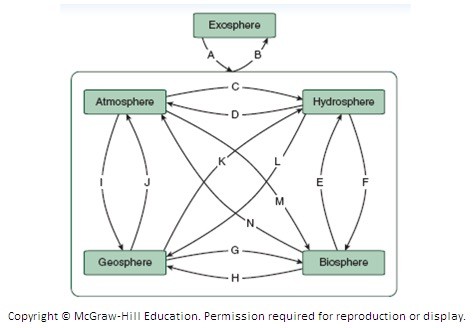As a result of your modern existence, some CO2 will be emitted on your behalf today. How long, on average, will that CO2 stay in the atmosphere before being absorbed and removed?
A. 100 years
B. 100 days
C. 1 year
D. 10 years
Answer: B
You might also like to view...
The advantage of effluent sewerage is that
A. Since solids are digested like a septic system, the effluent can be used as fertilizer B. Families can do all their processing at home C. Since solids remain in the liquid, disposal is easy and cheap D. Large, expensive municipal systems are no longer needed E. Since solids are removed, pipes and pumps to the central treatment plant can be small and cheap
The predominate system of agriculture practiced in Subsaharan Africa is
A) subsistence cultivation. B) intensive subsistence wet rice dominant. C) mixed crop and livestock. D) pastoral nomadism. E) dairy.
 Analyze the concept map above and consider how this applies to biogeochemical cycles. Which selection is most appropriate for a geosphere to hydrosphere interaction (letter G on the diagram)?
Analyze the concept map above and consider how this applies to biogeochemical cycles. Which selection is most appropriate for a geosphere to hydrosphere interaction (letter G on the diagram)?
A. Weathering B. Rock formation C. Organic decomposition D. Burning fossil fuels
What is meant by population momentum and what is its cause?
What will be an ideal response?